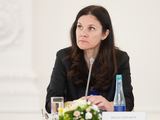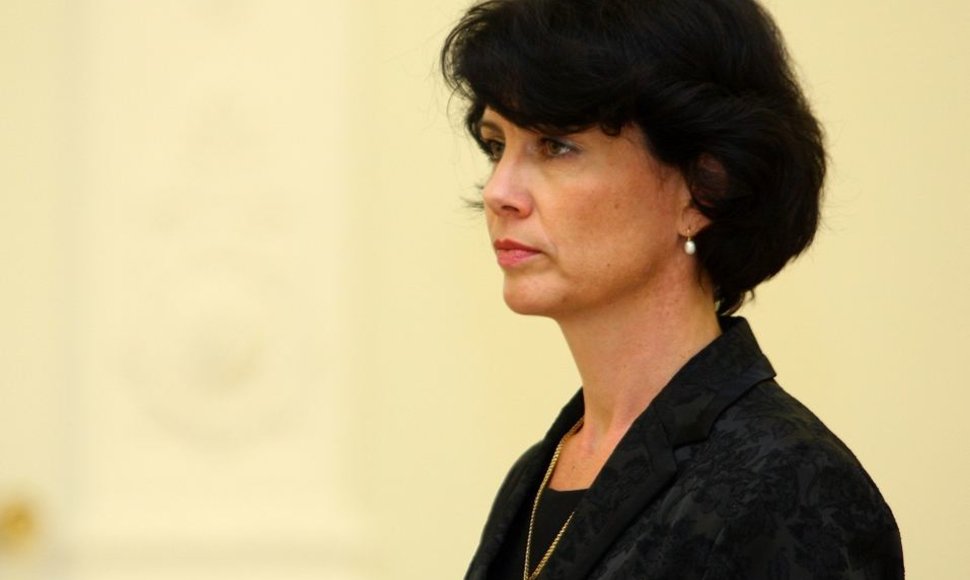She made a report at an international conference on efforts against human smuggling and prostitution in Sweden and Lithuania, held at the Lithuanian parliament on Wednesday.
In her words, female victims of human smuggling come to Sweden from across the globe, mainly from the Baltic states, Africa, and Asia, particularly from Thailand.
Kasja Wahlberg, a detective inspector at Sweden's National Police Board and spokeswoman on human trafficking, said the majority of human trafficking victims in Sweden originated from Romania, Estonia and Lithuania.
In her words, they were all women aged 14-46, with women also coming from Albania, Bulgaria, Algeria and other former Soviet republics.
The inspector acknowledged that establishing the real scope of human trafficking was a difficult task.
Speaking about Sweden's experience in efforts against human smuggling Ruthstrom-Ruin said prevention of demand and criminalization of buying sex were among the key instruments.
According to the ambassador, women involved in prostitution get support and assistance in Sweden. Ruthstrom-Ruin said Sweden viewed prostitution as a brutal form of violence against women, which cannot be acceptable in any country, especially in a country that recognizes gender equality.
The Wednesday's conference was organized by the Lithuanian parliament's Committee for Legal Affairs in cooperation with the Interior Ministry, the Swedish Embassy to Vilnius, and the Swedish Institute.
The event will review Lithuanian and Swedish national strategies on efforts against human smuggling and prostitution, present the experiences along with initiatives and methods that are used to prevent the crimes and help victims of the crimes.
Among speakers at the conference were Lithuania's Interior Minister Artūras Melianas, the Swedish ambassador, and director of the Vilnius University's Gender Equality Center Dalia Leinart, with reports expected from Swedish and Lithuanian law-enforcement figures.
In the end of April, Melianas set up a task force to establish and make proposals to improve the system for prevention and control of human trafficking.
The task force will have to analyze national and international legal acts and other documents, review national and international practices in connection with organization and coordination of human trafficking prevention and control, as well as submit proposals on improvement of the Lithuanian system.
According to data published by Lithuanian authorities, 42 investigations into human smuggling were opened in Lithuania last year, 17 individuals have been sent to prison.
Vilnius prosecutors have said that over 1,200 women are sold to sex slavery every year.
Changing profile of prostitutes and clients
The type of women engaged in prostitution and their clients in Lithuania has changed over the past two decades, says Dalia Leinartė, director of Vilnius University Gender Studies Center.
In her words, women prostituting themselves are financially unstable, and anybody can be a buyer of their services.
 |
| BFL/Tomo Lukšio nuotr./Dalia Leinartė |
Speaking at an international conference on efforts against human trafficking and prostitution held at the Lithuanian parliament on Wednesday, Leinartė presented a study on the evolution of the type of women engaged in prostitution and their clients.
She said prostitutes in the 1980s were young and old, both Lithuanians and immigrants from Belarus, residents of larger cities and rural areas.
In Leinartė's words, the client type of 1997-1998 was clearly defined – a man between 30 and 40 years old, able to earn easy money or start a new business.
Today, the situation is different, as Lithuanian people know about human trafficking and regard these women as victims.
"The type of women prostituting themselves has also changed. Today they can be clearly defined as financially unstable women," said Leinartė.
"What has changed about clients? Any man can buy a prostitute. Just like in the Western world, Lithuanian sex clients are both young and old, rich and with limited means, since sex services have become less expensive and more common," Gender Studies Center director said.












